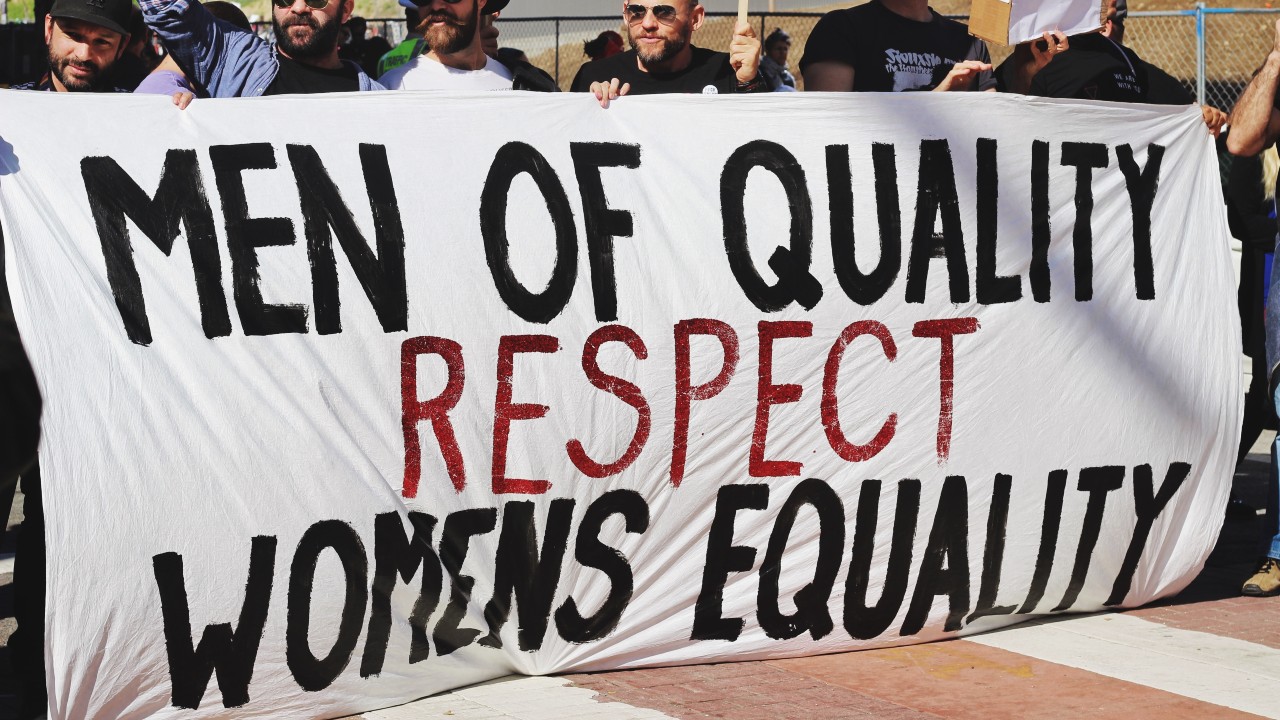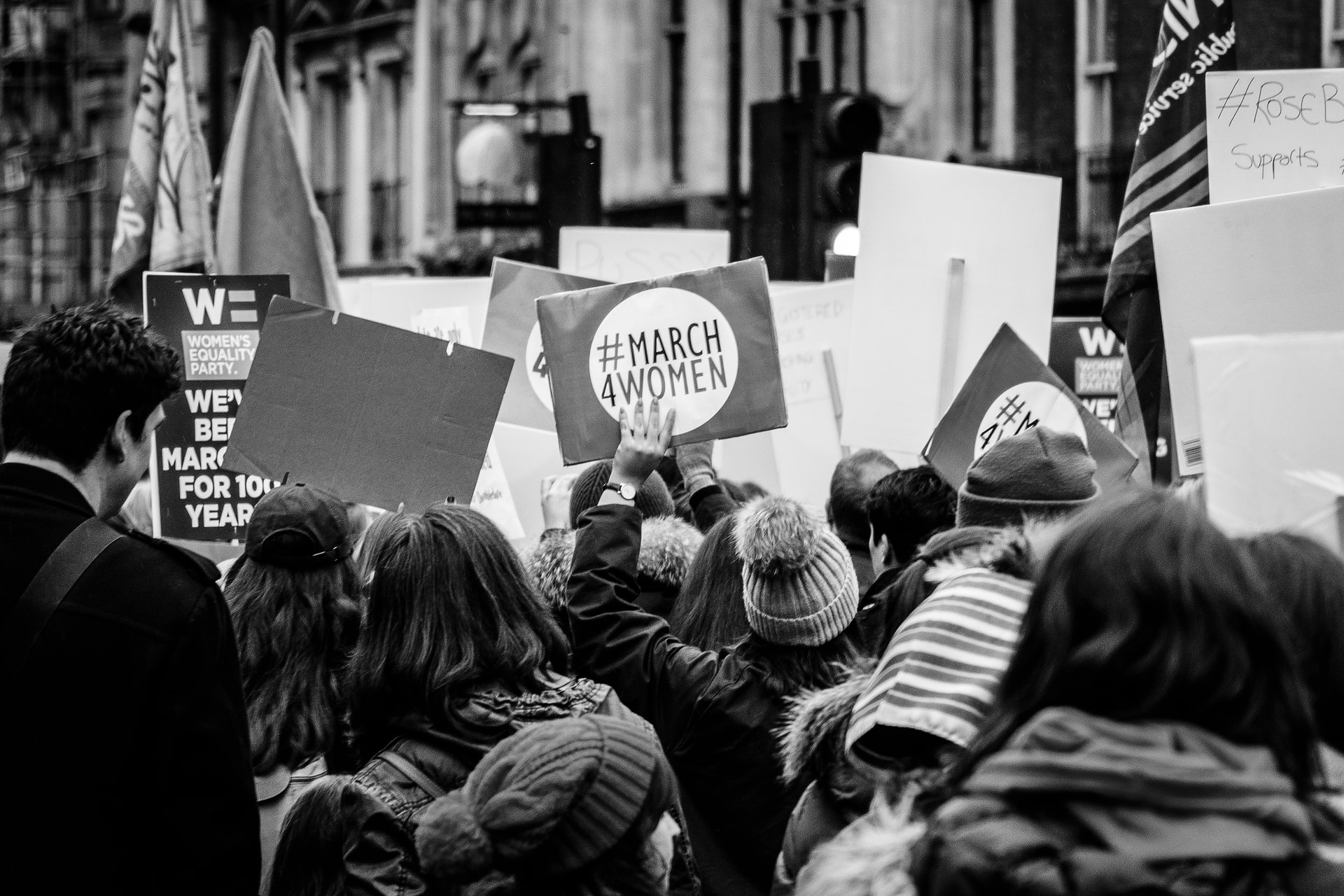By Pierre McDonagh and Andrea Prothero
◦ 5 min read ◦
To mark International Women’s Day 2021, the University of Bath’s Business and Society blog and Copenhagen Business School’s Business of Society blog have teamed up to present March for Gender. This month we will explore research focusing on gender, or research findings that have specific implications for women.
Here Pierre McDonagh and Andrea Prothero call out gender discrimination in the marketing academy. Their latest study, looking at gender representation in marketing’s academic journals, showed that women were significantly underrepresented on editorial boards, and that special issues and awards favour men over women. They use these disappointing findings to call for meaningful change, outlining how the problem could be addressed.
Despite the progress made in recent years, gender inequality persists in all walks of life. In our workplaces, the statistics are especially troubling. In 2020, men earned 15.5% more than women for the same work. As of 2019, only 7% of FTSE 100 companies had a female CEO.
Discrimination also comes in less easily measurable ways, and many women feel that their work is not taken as seriously as their male counterparts or that their gender has caused them to lose out on a promotion.
Wake up! It’s 2021!
We decided to explore this important issue in our latest paper in the Journal of Marketing Management. We looked at gender representation in marketing’s academic journals, through three key areas – the gender composition of editorial boards, special issue celebrations and the awards process. This study is a continuation of a larger research project which examines ‘the development of feminist thought within marketing scholarship from 1993 to 2020’.
Our results painted a disappointing picture. It’s a sad indictment of our field that in 2021 the facts are as stark as they are. So, we think it’s important to pause at this point in the process, to empirically call out one major issue – gender discrimination within our academy.
We wrote about this as we believe many scholars might not realise what is happening in our academy and, as our recent paper suggests ‘it’s hard to be what you cannot see’!
Our goal is to get scholars in the marketing academy to think differently about things that are hidden in plain sight. We also want them to join us in asking for meaningful change with respect to existing gender discrimination in the marketing academy.
A sad indictment of the field
For this study, we examined the gender composition of 20 leading journals [i], considering Editor-in-Chief, Co-Editor, Advisory Board, Associate Editor and Editorial Review Board positions within the journals. We found that, while there has been improvement since 2017, nonetheless in 2020 over two-thirds of the editorial board positions within leading journals in the marketing academy are held by men.
At the same time our research highlighted how journal celebrations also favour men. Special issues for example include reflections from previous editors (who are mostly men), and invited commentaries (who are mostly men). And, where journals and/or their related associations celebrate outstanding research through awards processes, those awards which are named after leading figures in the field are all named after men! We are not arguing that women are deliberately excluded from celebrations, but that there are structural, systemic and institutional biases at play, which means male colleagues are privileged over women. And this of course, also means that injustice and inequality for female academics are perpetuated.
Addressing the problem
How then can the marketing academy and the publishing houses which publish our research help rectify this sad state of affairs? First of all, we can all ask our journal editors and gatekeepers in the Academy to act now. Specifically, we are asking journal editors and publishing houses to review their activities, and we offer here 4 simple steps to tackle gender discrimination specifically, and inclusion and diversity more broadly, in the marketing academy:
- Build diversity into existing journal review boards which extends across the globe. Cry out for each Editor-in-Chief to publish a statement for their journal making clear ‘why’ its gender and race composition is the way it is. Ask that they embrace the principles of unity & diversity. Editors-In-Chief are well positioned to lead the charge moving forward.
- Introduce a quota system to ensure diversity of people involved in journals from advisory boards, manuscript review boards, Associate Editors, Co-editors, to the Editors-In-Chief.
- We should ask awkward questions of the leaders in our field. Why do the majority of named awards in our field honour white men? We request awards which also honour the leading people of colour and females in our field. Quite simply the current status quo is an injustice – not everyone is a white male academic, so why do they dominate everything!?
- Celebrations – Our Editors-in-Chief can shape the field by celebrating those who remain invisible within our field. We have female role models for younger scholars to inspire them to greatness, but they are not celebrated or included either in editorial boards or in special issue celebrations to the same extent as men. Let’s rectify this.
Can we please bring the marketing academy up to speed in the year 2021? Let’s not procrastinate here or leave it to DC or Marvel fantasy movies to inspire change, let’s do it ourselves.
We know Rome wasn’t built in a day and change takes time, but we’ve heard all the clichés before – we are fed up, we are here, and we want to be listened to. Our marketing academy should reflect the values we cherish and those we wish our students to emulate. For too long the marketing academy has favoured one gender (and one race) and as a result, women have been pushed to the periphery of the wider academy.
Change, not tokenism
What’s more we want fundamental change, not tokenism.
We need an intersectional approach now more than ever; this recognises issues of race and gender, alongside other examples of subordination such as appearance, class, religion, sexuality and ability which are not independent of each other.
We need what Marian Wright Edelman (founder of the Children’s Defense Fund and civil rights activist) calls a global sense of connection – where everyone can be seen, and all voices are heard and rewarded, whether by being invited to contribute to special issues celebrating our journals or by membership of our editorial boards! We deserve ‘marketing joy’ to underscore what we have in common with others in a multiracial, multicultural, democratic society.
This is important, not only in providing role models for aspiring academics who are not solely “pale, male and stale”, as well as providing equal opportunities in terms of key indicators of esteem within our academy, but also in terms of harnessing what gets published in our journals. In 2021 it is simply not acceptable that 88% of advisory board members within our journals are men or that some journals in our field have never had a female Editor-in-Chief. When publishing houses claim on their websites to be fully committed to inclusion and diversity in their journals, we also need this to shine through within our journals. In the marketing academy, while there has been improvement in recent years, gender representation is still appalling.
We call on those who can to change this. We need parity. Now.
References
[i] Journal of Consumer Psychology, Journal of Consumer Research, Journal of Marketing, Journal of Marketing Research, Marketing Science, Journal of the Academy of Marketing Science, Journal of Retailing, International Journal of Research in Marketing, European Journal of Marketing, Industrial Marketing Management, International Marketing Review, Journal of Advertising, Journal of Advertising Research, Journal of Interactive Marketing, Journal of International Marketing, Journal of Public Policy and Marketing, Marketing Letters, Marketing Theory, Psychology and Marketing, Quantitative Marketing and Economics.
About the Authors
Andrea Prothero is Professor of Business and Society at University College Dublin, Ireland, and Co- Director of the UCD Centre for Business and Society (CeBaS). Her research broadly explores the area of Marketing in Society with a key focus on sustainability and gender issues.
Pierre McDonagh is Professor of Critical Marketing & Society at the School of Management, University of Bath, UK. Pierre has researched sustainable consumption & production since the early 1990’s and helps people understand what sustainable communication entails. He also writes about issues in gender equality in marketing and the benefits and challenges of critical marketing communications. He recently co-authored ‘The Dark Side of Marketing Communications’ with Tim Hill, which features as part of the Routledge series on Studies in Critical Marketing.

